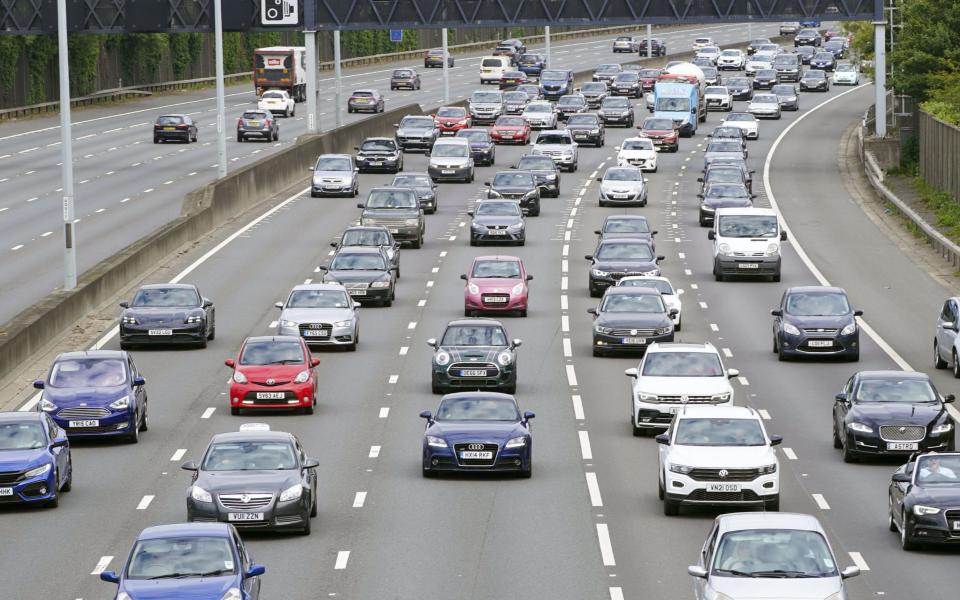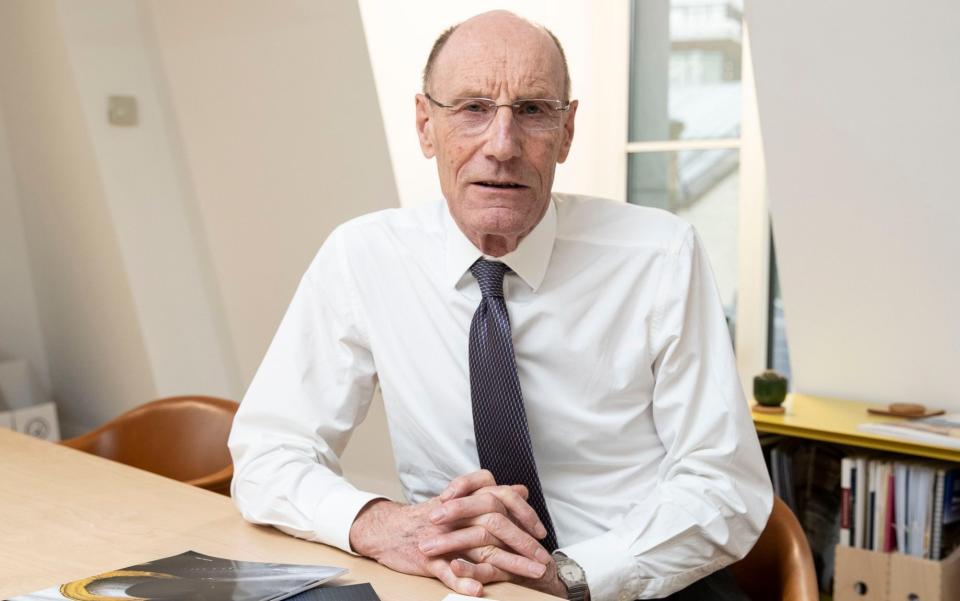Pay-per-mile road pricing is ‘inevitable’, drivers warned

Motorists will “inevitably” end up paying per mile to drive on Britain’s roads as the switch towards electric cars drains away fuel taxes, the Government’s infrastructure tsar has said.
Sir John Armitt, the chairman of the National Infrastructure Commission (NIC), said the Government had to consider new ways of funding Britain’s critical infrastructure such as motorways, as the Treasury faces the loss of nearly £30bn in fuel duty receipts.
Different versions of a pay-per-mile system could be considered such as schemes that charge more at busier times, he said, or a privately-financed toll motorway model similar to the one used in France.
Sir John added: “Politically, it’s a very difficult issue. Many people will say road pricing is inevitable.
“Personally, I don’t see why it should be any different to anything else. We pay for all our other infrastructure services as we use them.
“At the extreme … you could pay a different rate, per time of day, per type of road you were driving on, anywhere in the country and you just get a bill because it would all be monitored remotely.
“At the end of the day, it’s the public who pay. We pay either through our taxation, or we pay at the point of use or our pensions are used to invest.”

Fuel duty brings in £25bn for the Treasury per year – equivalent to almost half of Britain’s defence budget. But consultants at PwC have warned the Government stands to lose £9bn of this by 2030, when one in four vehicles on the road is expected to be electric.
A pay-per-mile road tax is one of the potential solutions officials have previously suggested to replace the loss of receipts. The idea has been backed by think tanks and environment groups, who argued that a flat per-mile charge could be easily metered through annual MOT checks or digitally using electric car hardware or fitted black boxes.
Sir John was speaking as the Government announced plans for a new 10-year national infrastructure strategy, which will set out a building programme for roads, railways, bridges and “social infrastructure” such as schools and hospitals, to be published in the spring.
The plan will be overseen by a new super-authority, created by a merger of the NIC and the Infrastructure and Projects Authority, which will “get a grip” following significant delays and overspends on several major schemes, said Darren Jones, the chief secretary to the Treasury.
Mr Jones said the plan would give potential investors greater certainty about the Government’s plans, adding: “This new body will get a grip on the delays to infrastructure delivery that have plagued our global reputation.
“It will restore the confidence of businesses to invest and help break the cycle of low growth.”
He said that under previous, Conservative-run governments, projects had suffered from a “lack of strategy clarity”.
“Instead of clarity, we’ve had confusion,” he said. “Instead of strategy, we’ve had short-term-ism, and instead of stability, we have had chaos – all of which has reduced investment in infrastructure and our country.”
Mr Jones also said there was “lots of room for improvement for working with the private sector investors to get money flowing into infrastructure delivery across the country”, in a fresh hint that the Government may look to replicate the model used to build London’s £5bn super sewer.

There has been speculation that ministers could similarly tap private financing to pay for the £9bn Lower Thames Crossing, a road tunnel that would link Essex and Kent. This could be done using a so-called regulated asset base model, where the Government would underwrite the scheme and investors would begin receiving payback during construction.
One senior official on Thursday suggested there would be substantial interest in this among infrastructure and pension funds, which viewed such projects as “very attractive”.
It comes after The Telegraph reported that Rachel Reeves was preparing to rewrite Britain’s debt rules in order to unlock as much as £50bn of extra spending on infrastructure in her maiden Budget.
Mr Jones said on Thursday: “Our approach to fixing the foundations is about investing in infrastructure in this context, both in the public and the private sector, because the lack of investment over the last 14 years is what has resulted in poor productivity and then, in many areas, has resulted in high public spending.”